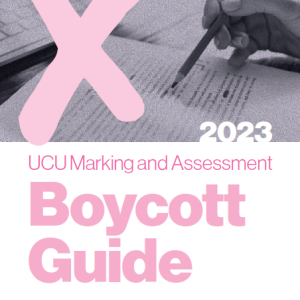Strike FAQs
What is a strike?
A strike is a collective agreement to refuse to work, declared by an organised group of employees as a way to compel a powerful employer to negotiate, usually as a position of last resort after conventional attempts at negotiation have failed.
Strikers lose all pay for the time they are on strike.
Striking is lawful. Historically, strikes have played a major role in securing workers’ rights, safe working conditions and fair rates of pay in many kinds of employment around the world.
What are the strikes about?
The University sector in the UK is rich. Your tuition fees prop up a sector that has an annual surplus of £3.4billion, plus over £40billion in reserves.
Despite these riches, University staff pay has fallen by 25% since 2009. To put this another way: compared to 2009, staff are working for free for three months every year. The current pay ‘offer’ from employers would see our pay fall by a further 15% between now and 2024. This cannot go on.
We are also fighting against impossible workloads, shameful levels of casualisation and disgraceful inequality in Universities.
This affects you directly. University staff are allocated and paid for 37 hours of work per week. Yet in order to get their work done, staff actually work on average 50.4 hours per week, the equivalent of two full days extra for free, in their own time. It is impossible for us to produce our best quality work under these conditions. You deserve better!
Staff are often on casualised and insecure contracts. A third of academic staff are on fixed-term contracts. Imagine trying to plan your modules for next semester or next year, if your contract was going to end before then. As well as the stress and uncertainty this causes staff, it has a direct impact on the quality of your education. And it’s not just fixed-term contracts: many Universities including ours even advertise zero hour contracts.
Universities are also places of extreme inequality. The pay gap between black and white staff stands at 17% and the disability pay gap is 9%. The mean gender pay gap is 16%. The issues of pay, casualisation and impossible workloads are also intersectional: Women, Black and disabled staff were all disproportionately likely to report that their workload had increased, and the same groups are also disproportionately likely to be on casualised rather than permanent contracts.
You should be angry at the prospect of strike action. You should be angry that University bosses have allowed things to get so bad. You should be angry that you have to pay fees at all, and even angrier that your fees are not being spent on staff.
We are angry too.
What will actually happen on strike days?
Classes on strike days will not take place and will not be rescheduled. Lecturers will lose their pay for the days that they strike.
Members of staff who are on strike will picket their workplace. This means they will stand at the main entrances and explain the reasons they are on strike, encouraging people not to cross the picket line. Picket lines will often have music, speeches and other activities and you are encouraged to visit picket lines to show your support.
What do the National Union of Students say?
The NUS supports these strikes. NUS Vice President for Higher Education has said:
The struggles we face as students are inextricably linked to the reasons that staff are striking. High rents, astronomical international student fees, and cuts to maintenance support have happened for the same reasons that staff are suffering under huge workloads – the failed marketisation of the sector which has put profit above staff and student well-being.
What can I do to support the strikes?
- Complain!
- The Students’ Union has guidance on claiming financial compensation.
- Email the Vice Chancellor [d.humphris@brighton.ac.uk] and copy in brightonucu@gmail.com
- Explain to your friends and classmates why they should be supporting the strikes
- Join your lecturers and support staff on picket lines at every campus on every strike day and check https://blogs.brighton.ac.uk/ucu/ for info about other activities happening on strike days
- Follow @BrightonUCU on social media and show your support publicly.
- Talk to staff about the strikes. We all want a better, fairer future for education.




Leave a Reply